Ethan Newton’s Tokyo store – Bryceland’s Co

I was quite intrigued to see Ethan Newton’s Bryceland's store in Tokyo when we visited a few weeks ago. In particular, how he is presenting his view on tailoring and how that mixes with the more casual americana side.
The tailoring is essentially a soft Italian make - Dalcuore, Orazio Luciano - in English cloths. Those cloths are pretty distinctive though: heavy hopsacks and coverts, all solid and hard-wearing.
And the cut has been tweaked in several areas: a broad chest, small waist, and larger sleeve in the jacket, with a high-waisted, full-legged trouser.
“This is a man’s cut - a big chest and a strong arm. It’s something not all customers understand at first, but it’s very intuitive when you start talking about it,” says Ethan.
His camel overcoat from Orazio (above) has been similarly tweaked, with more belly on the lapel and a lower gorge. Adds Ethan: “I wouldn’t say the tailoring draws on one particular era, but there are certainly influences from the 1920s and into the 1930s."
Ethan leant some tailoring when he was in Australia, and is trying to improve today with the help of Japanese tailor Yusuche Ono, known as Anglofilo (below), who has a studio in the back of the shop.
“My pattern making is getting pretty good now,” Ethan says, “but my making is still pretty terrible.”
(See separate post on Anglofilo and where he sits among the current Japanese tailors here.)
Elsewhere there are ready-made trousers cut by Salvatore Ambrosi, who was visiting for a trunk show when we were there, and shirts made to Ethan’s pattern by Ascot Chang - often unusual patterns and stripes, with a full body and nice roll to the collar.
The ties are made by Kenji Kaga’s Seven Fold brand, once Tie Your Tie in Florence, in some really nice muted, classic colours.
(They are also one of the only things Brycelands sells online - alongside Red Rabbit silver accessories, below.)
I was impressed by the fit of Salva’s ready-made trousers, which deliberately have a higher rise in the back than the front (I’ve always struggled with a flat-top fit on trousers).
The range isn’t big, but Salva visits often enough to make made-to-order versions attractive.
Of course, with the shop being in Tokyo and so little available online, all this will be out of the reach of most readers.
But it is worth celebrating a unique store that becomes a reason to travel - as we’ve tried to do in our series of shopping guides.
On the casual, workwear side, Ethan has a lot of vintage pieces - very nice, but one-offs and expensive - alongside some recreated ranges like jeans that mimic 1947 Levi’s 501s, made by a local Japanese maker that uses original chain-stitching and butthonhole machines.
There is clearly a big market for americana and vintage clothing in Japan, but does that also mean there is a lot competition?
“In some ways, but actually the market here has become very narrow,” says Ethan. “Everyone just wants the iconic pieces, the ‘55 501s for example. There aren’t many people offering something different.”
“That was one area where Kenji [Cheung, Brycelands co-founder] was very influential - he said there was this hole in the market, because everyone else had a very cookie-cutter approach.”

One aspect of Ethan’s approach I find particularly appealing is around value and utility.
He likes brands like Alden and Saint Crispin’s because they are such great value, and he tries to sell things at a fair price (without ever going on sale).
Having shirts made at Ascot Chang in Hong Kong is similar - they are well made, and a lot better value than those that could be imported from Italy.
“It links to the appeal of vintage as well - the idea that these new clothes we’re selling could also go on to be great vintage,” says Ethan.
Amen to that.
Photography by Jamie Ferguson @jkf_man












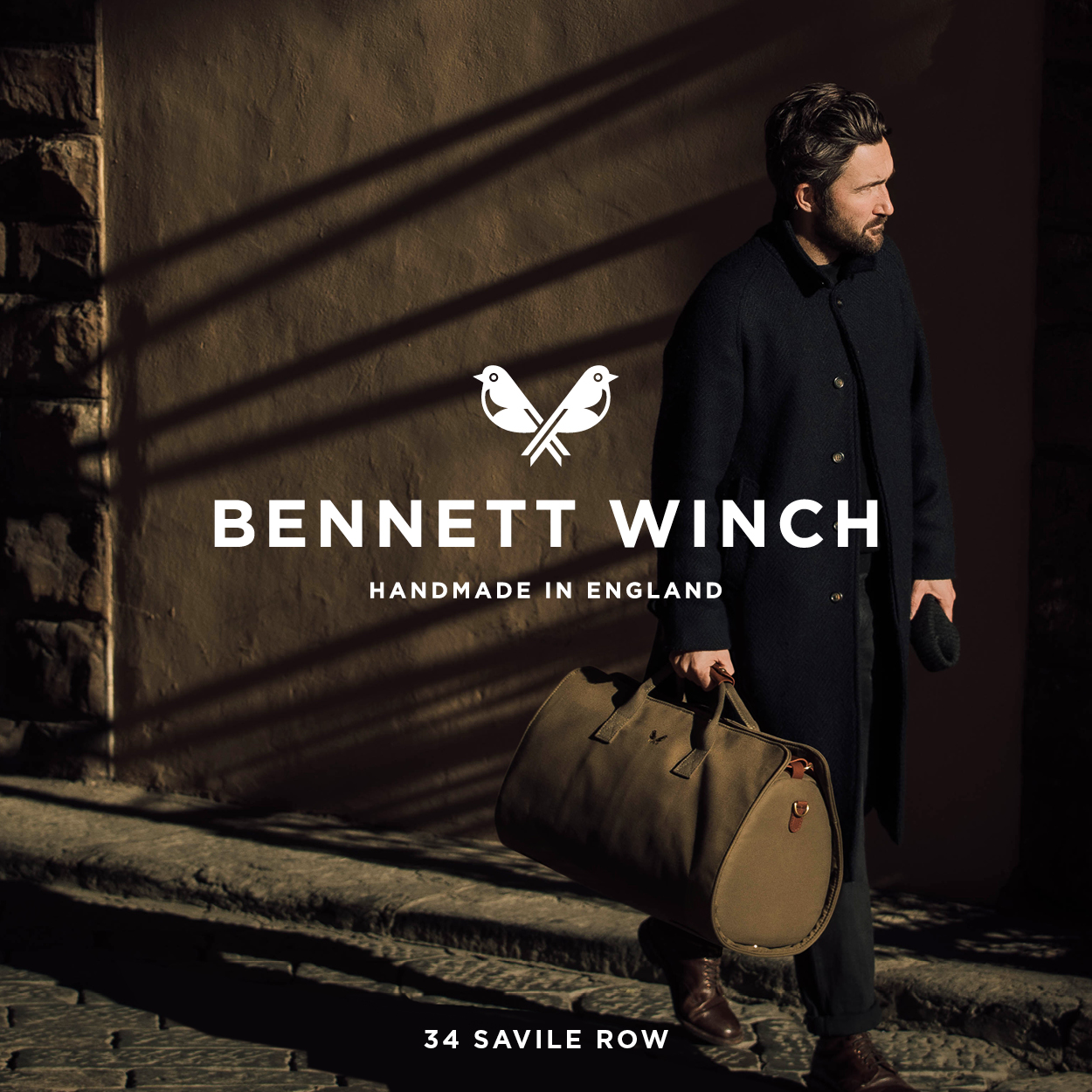




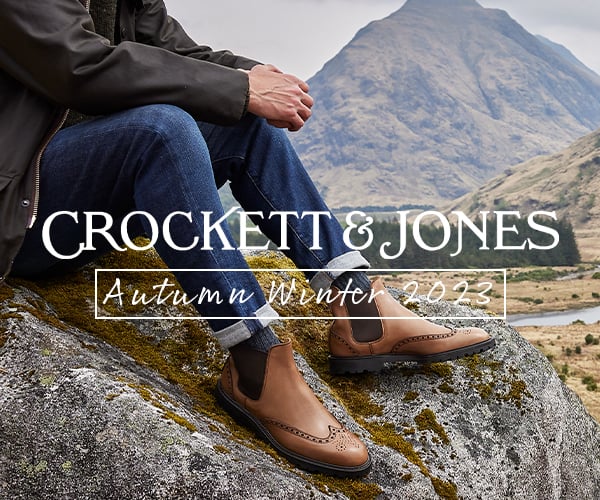




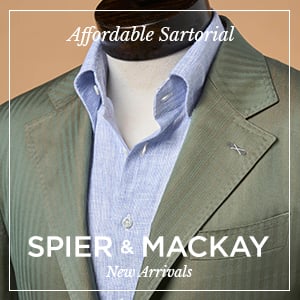
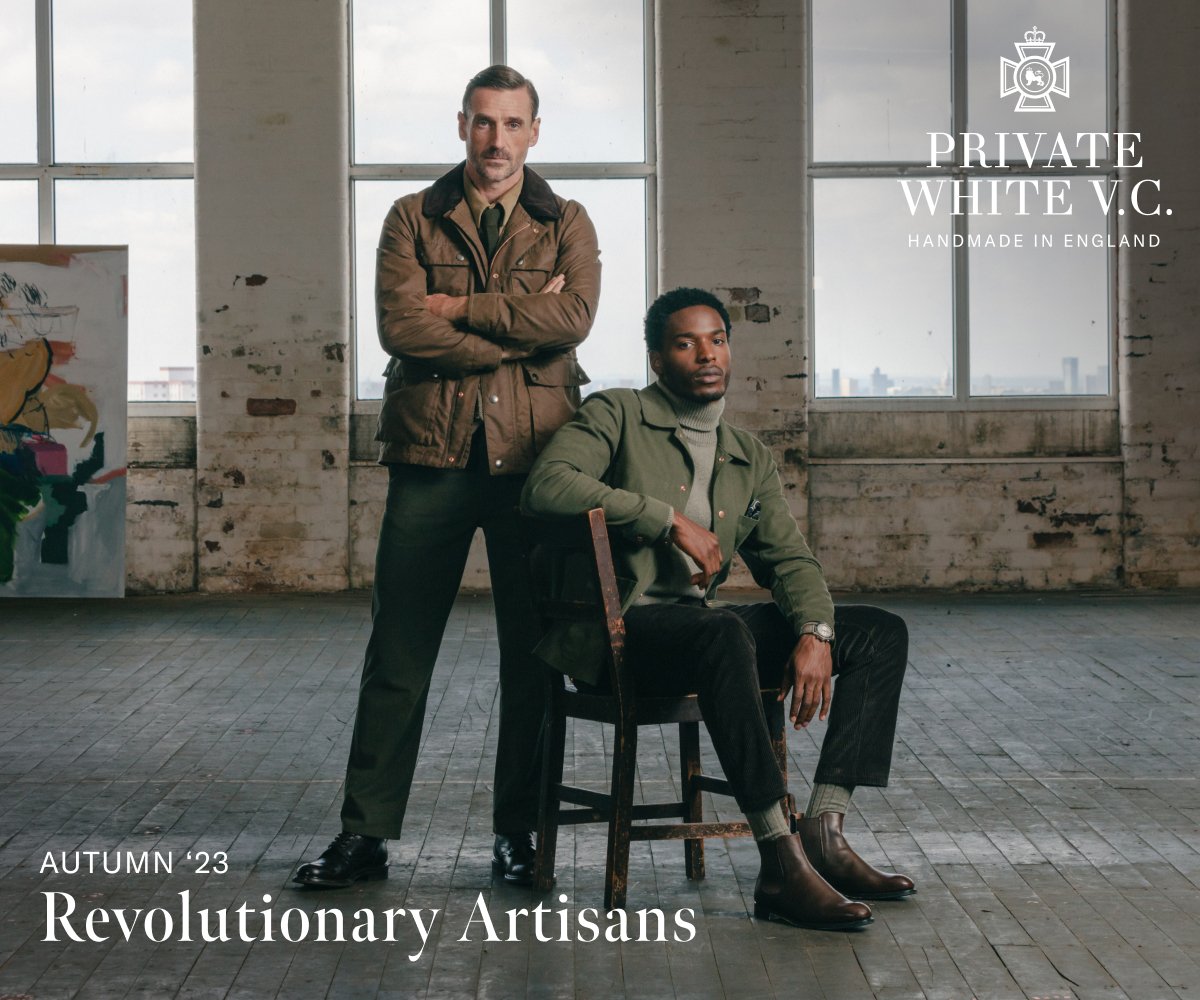
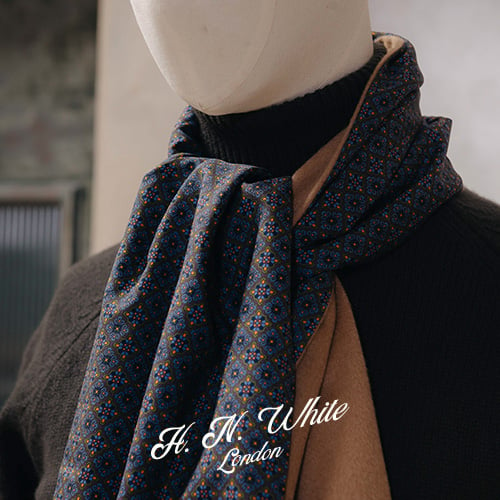




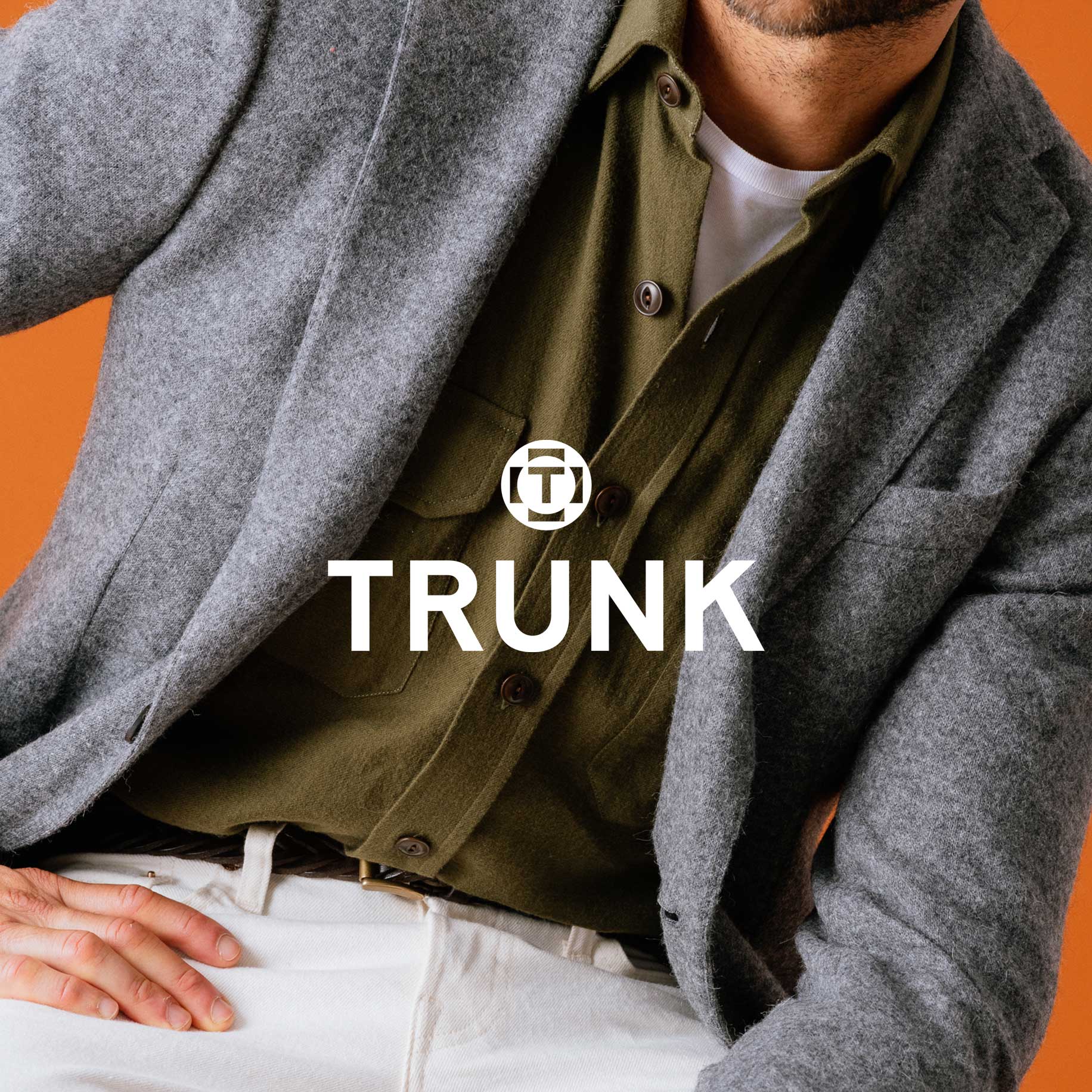
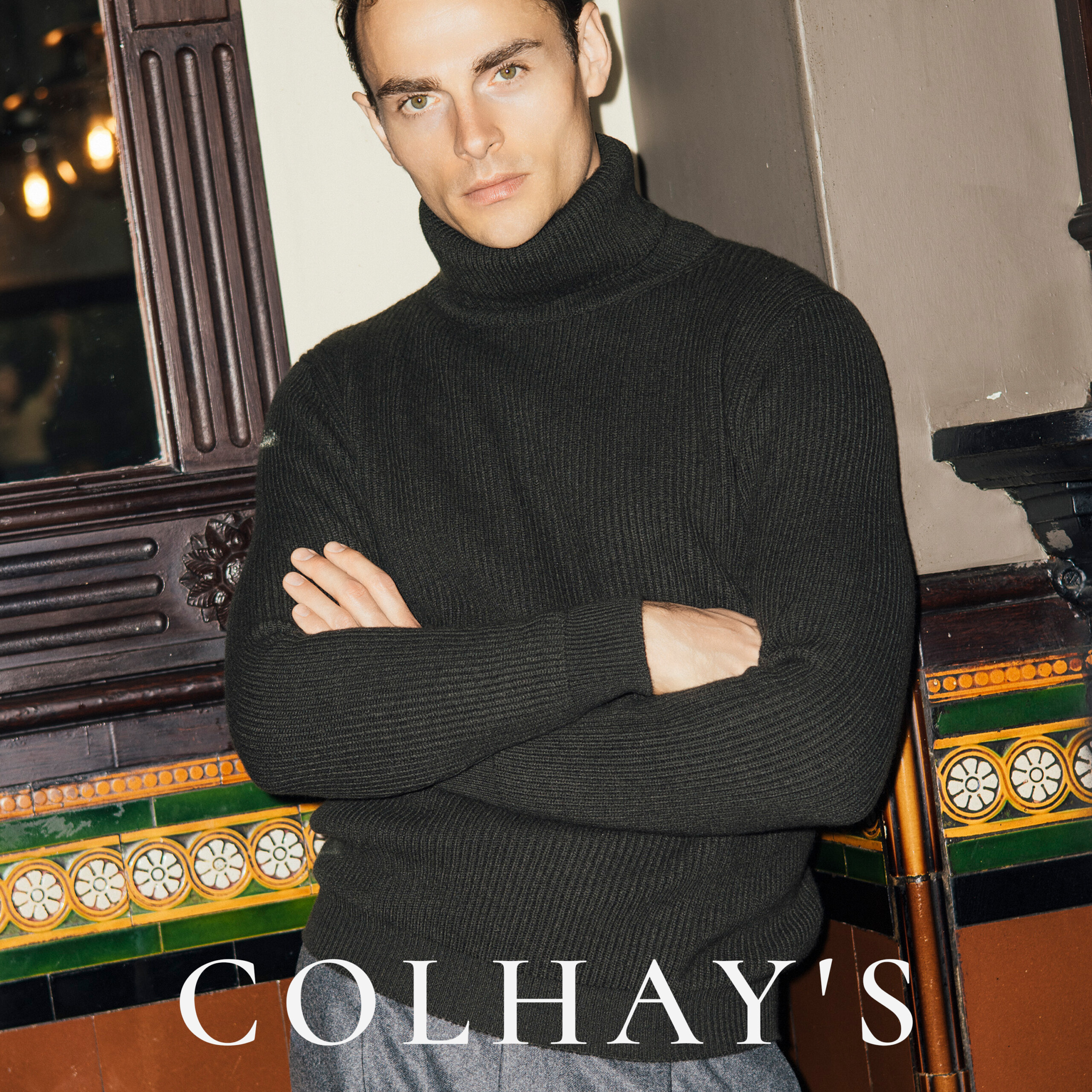



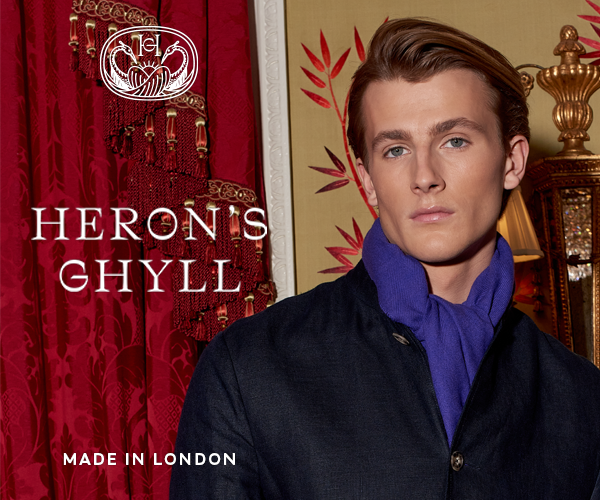

“This is a man’s cut – a big chest and a strong arm. It’s something not all customers understand at first, but it’s very intuitive when you start talking about it,” says Ethan.
I’m genuinely confused – or taken aback – by the approach to tailoring in Tokyo. My hallucination was that Japanese customers like a remarkably slim fit because they are remarkably slim people.
So – is this tailor attempting to sell Japanese customers on a broader, wider and less fitted cut? That seems like a poor idea on every level: suits should fit the body you have; the proportions of a suit shouldn’t exist (or be dictated) by an ideology…if that way of thinking doesn’t line up with the physical proportions wearing it, no?
Many Japanese may prefer a slimmer shorter cut but it doesn’t necessarily mean it suits them. Often they could do with a little bulking up in the chest and arm, while retaining the slim waist.
The photography on his online shop is beautiful. The photographs of ties against richly coloured backgrounds are superb. The use of these backgrounds gives an idea of what colour of jackets the tie will pair with. Other retailers can learn something from Mr. Newton about product presentation online.
Really happy to see you do a post on Ethan. He’s probably been one of the most Influential people when it comes to my approach to clothing recently,
Thanks, Simon!
The gentleman from Anglofolio looks like he’s wearing an ensemble from a 1990’s Georgio Armani ad.
Hi Simon, I totally agree with Peter and Jose. I met Ethan a few years ago, during the time he was at the Armoury HK, and his advice was invaluable. What struck me is how he thinks about things like you refer to in your comment of “bulking up”. In my case, he showed me what a slimmer chino can do for a 50 year old! Thanks for showcasing him: – truly nice man. Kindest regards D
Ethan is one of the best around. Not only does he look forward, but also has the respect and knowledge of the past. One thing that is difficult to write about or express is the relationship he forges from the product, history, artisans, and customers that is rarely seen. We should all celebrate the uniqueness of such craftsman and support individuals and company’s like Bryceland’s. one love Ethan and Kenji!
Nice comments all, and I agree, truly deserved
Being on the portlier side of life and struggling with weight fluctuations myself, Ethan is of course a role model for me. Current menswear, bespoke or else, focuses heavily on providing clothes and cuts for slim people, while manlier men with bigger chests, necks and legs are often left behind. Seeing someone like Ethan and his many different ways of dressing is always fun. Dressing the bigger man in a well manner asks for a different view on menswear and an eye for combining styles, which is often irgnored. I really wish him all the best with his shop, my only quarrel is that he’s thousands of miles away.
Hi Simon,
I’m delighted to read this post dedicated to Bryceland’s co. To me, Ethan Newton definitely belongs to the group of gentlemen – yourself included, Simon – who have greatly contributed to shaping our tastes and redefining what’s really worth our attention in menswear today!
I don’t remember anymore how I stumbled upon Rugged Old Salt, the blog still run by Ethan Newton. See here: http://ethandesu.com/
But at once, I liked his keen sense of style and aesthetics in menswear.
Yes, “value and utility” as defining characteristics of this approach, but I would add aesthetics too. For iIt’s not a sheer happenstance that he runs two or three blogs.
What he features on Tumblr or Instagram are not disguised ads! Such a feat makes him stand out!
His own style is broad enough, being at ease with a DB suit or a denim jacket and chino trouser as well. So there is an opportunity for any style-conscious guy to find a connection with him. And that’s interesting in itself!
You’ve mentionned his bent for “full-legged trouser” as a matter of style. Honnestly, in hot climes, heavy linien or chino trousers made that way and paired with loafers could be really cool!
See here what I mean: https://www.instagram.com/p/BF3RNUaGIi4/?taken-at=1029755393
Perhaps there’s a whiff of utility here. But frankly, at 35° C it doesn’t really make sense to wear a slim fit chino anymore!
While not running a blog like PS, from time to time Ethan Newton doesn’t shy away from sharing his thougths when musing over the men and women whose crafts we all hold in high regard here.
See the following excerpt retrieved from his blog Rugged Old Salt:
“A great tailor makes a man look at his best, builds him a uniform to play with as his moods see fit, and a framework of understanding to make, hopefully, very few mistakes. The man who thinks himself too short or stout or frail or plain can see clothing take shape that emphasizes his strengths, and his only”. Ethan Newton.
John
Great stuff – I love Ethan’s style & would say that you don’t just have a to be a big guy to appreciate more generously cut clothing, it is refreshing to see clothing offered that is not skinny, fitted, short etc. It is only a shame that we couldn’t hear more of his thoughts so a more extended interview would really be welcome at some point.
Happy to Michael, I’ll suggest it to him
Alden isn’t good value here in the UK compared to the British shoemakers
Great post. Glad to see alternative cuts being championed by Ethan.
Hi Simon,
I saw on Instagram that you recently bought (and love) a Brycelands sawtooth westerner shirt.
I’ve wanted to pick up one for a while. Could I ask what size you bought please as it would be very helpful to my own sizing conundrum.
Thanks so much
I bought a 38, and compared it to a 40. I’m probably between the sizes, the former being a touch tight on the shoulders but better under a jacket – a 40 was too bulky under a jacket, but would have been good if worn under a leather jacket etc
Thank you Simon! This is so helpful as I’m similar to you (but usually between a 36 and 38). Have a lovely day!
Oh good. Pleased I could help
What was Ethan’s role at the Armoury?
He joined soon after the start and was involved with much early imagery and product development
Hi Simon – what are those bags in the last photo? Thanks!
A vintage backpack, and a collaboration Brycelands did years ago with Frank Clegg, using some vintage cloth.